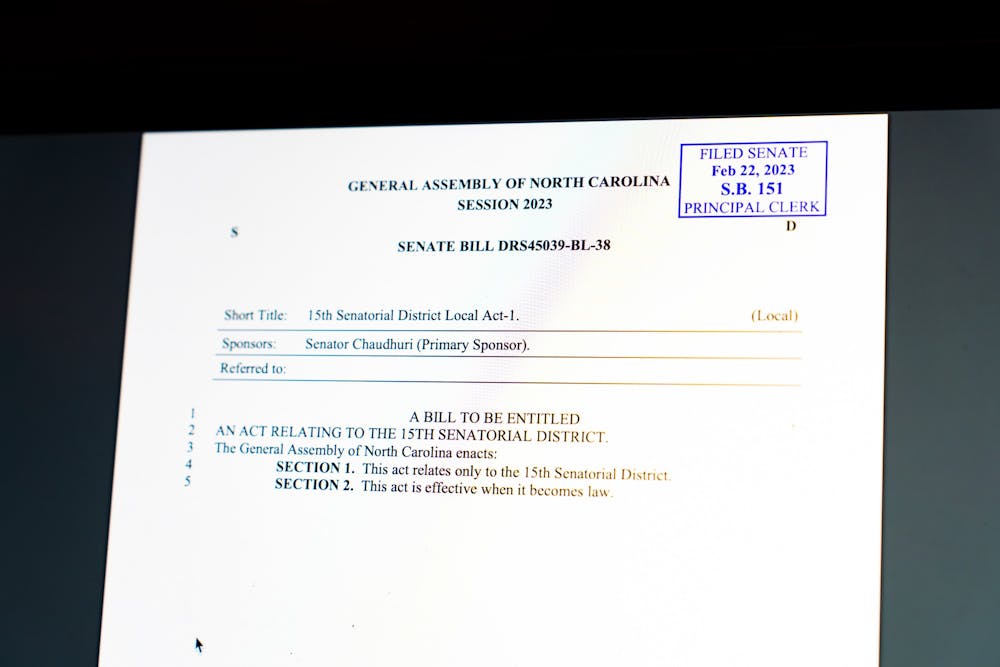Most bills in the N.C. General Assembly are written to address a specific issue, but for some bills originating in the North Carolina Senate, there are only two provisions — one referring to a specific legislative district, and another stating that an act is effective when it becomes law.
In North Carolina, state senators occasionally file blank bills during legislative sessions, which could be filled in later before going to a vote in the General Assembly.
In the N.C. Senate, local bills for 2023 must be filed by March 9, about a month earlier than the deadline for filing public bills and resolutions.
Andy Jackson, the director of the Civitas Center for Public Integrity at the John Locke Foundation, said blank bills are useful for senators because they can be used to respond to local issues that arise after the deadline for filing local bills.
“It is a parliamentary trick to get around bill submission deadlines,” Jackson said in an email.
Gerry Cohen, an adjunct instructor at the Duke University Sanford School of Public Policy, said these bills often originate from post-deadline requests from city councils, county commissioners or school boards.
“A lot of times what members will do is they'll file a blank bill that can be used for any county in their district, and then a lot of times it'll be filled,” Cohen said.
He said the state legislature has different deadlines for specific types of bills to spread out the workload across the entire legislative session. There were no deadlines for bill filing until the 1980s, Cohen said.
“The legislature got tired of 60 or 70 percent of the work for the year getting done the last two days of the session,” he said.



